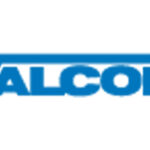All company leaders, when given the chance to discuss the strongest aspect of their businesses, will almost without fail say it’s the people. Could it be, though, that these company leaders are doing a bit of self-congratulations?
At Atrion’s annual AlwaysOn Symposium, the company spent a day focused on the key pieces of creating an ideal company culture, passing on the aspects that have helped the Warwick, R.I., IT integrator become one of the best in the industry.
One of the biggest problems company leaders encounter as they grow from a mom-and-pop shop with a handful of employees to a business with 50 or 100 people is they try to keep things going in the same way despite the obvious need for transition.
“As we started to grow, we realized we couldn’t do that without understanding how people work together,” Atrion CEO Tim Hebert said in his opening keynote at the 2015 AlwaysOn Symposium. “That’s culture. It’s something you pass from person to person to person, in your communication, in the way people behave. You also need to be able to break the cycle and not replicate bad behavior.”
Carve Your Own Path
As difficult as it might be for some business leaders to accept, Hebert emphasizes, “You can’t become the next Google.” That’s not a criticism, but a reality based on the mix of people and the time that led Google to become what it became, he says.
“Leaders can’t dictate culture,” explains Hebert. “You have to be able to shape it, but you can’t mandate it.” Culture comes in a couple of different forms: formal culture, such as HR policies and employee benefits; and informal culture, which is organic.
“When your culture is good, you don’t really think about it. When it’s bad, it can be all-consuming. Environments can be energetic and vibrant or toxic. It doesn’t happen overnight.”—Tim Hebert, Atrion
Culture is shaped by the people you hire, says Hebert, and can range from safe and comfortable to exciting and exhilarating to dangerous. Where you fall on the spectrum is determined by the makeup of your employees, from climbers (the 10 percent of people who move to change) to campers (the 80 percent or so who embrace low risks, enjoy the status quo and move in herds) to captive (the 10 percent who become victims, cynics and skeptics).
Hebert points to five aspects that contribute to company culture: vision, purpose, values, people and experiences. Those with the strongest culture often have people who are resilient and can overcome challenges, while experiences manifest themselves when people do common things in uncommon ways.
“Hiring the best talent doesn’t always solve problems,” says Hebert. “It’s about the culture that holds those people together. When your culture is good, you don’t really think about it. When it’s bad, it can be all-consuming. Environments can be energetic and vibrant or toxic. It doesn’t happen overnight.”
About 80 percent of companies don’t last five years, says Hebert. Of those that do, about 80 percent of those companies don’t make it to their 10th anniversary. Problems typically come as a result of bad strategy, poor fiscal management and a lousy company culture. Hebert points to statistics that show about 30 percent of employees are actively engaged with what’s going on with the business, about 20 percent are actively disengaged and more than half are not engaged.
“True culture change happens below the surface,” he says.
Importance at Companies of All Sizes
Julian Phillips, executive VP at Whitlock, says even large companies need what they call “founding principles” to guide company culture. Whitlock has outlined 10 items that encompass “everything that we do, from the recruiting process to performance reviews to how we set standards with regards to behaviors internally.”
More important than having the core principles on the wall is remembering them and, of course, utilizing them, says Phillips. He points to “integrity” as the most important of the group.
“We like to recruit and develop people who we trust with the relationship, with process, with cost, with a whole range of other things,” he says. “It’s vitally important that we bring people into the business who have that integrity to make the best judgment that they possibly can and to exercise that judgment to deliver to the customer.”















